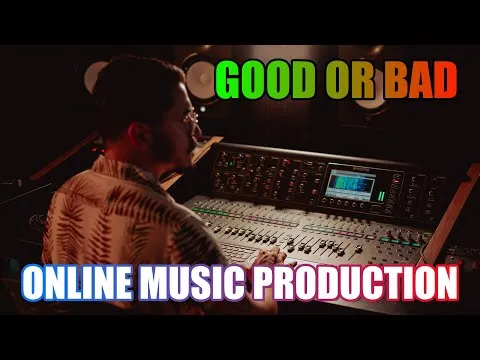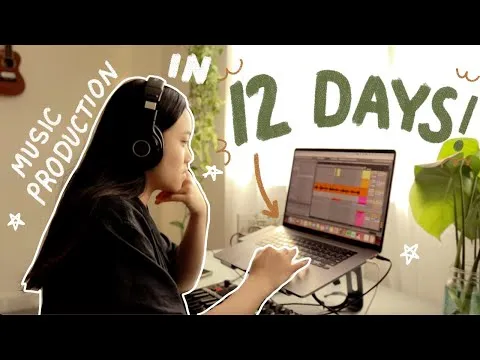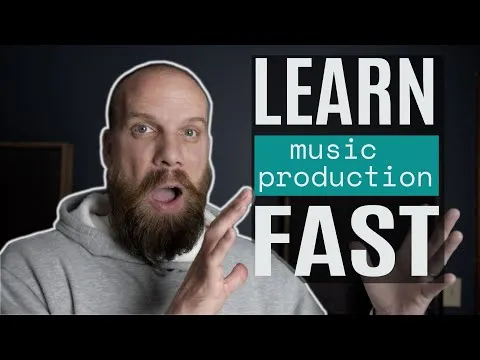
Ultimate Ableton Live 11 Part 1: The Interface & The Basics 
Join Dr. Jason Allen in Ultimate Ableton Live 11 Part 1: The Interface & The Basics, and get 5-Star Certified by the International Association of Online Music Educators and Institutions (IAOMEI). With 100% Answer Rate and 24-hour response time, you'll be an Ableton Live expert in no time! ▼
ADVERTISEMENT
Course Feature
![]() Cost:
Cost:
Free Trial
![]() Provider:
Provider:
Skillshare
![]() Certificate:
Certificate:
Paid Certification
![]() Language:
Language:
English
![]() Start Date:
Start Date:
On-Demand
Course Overview
❗The content presented here is sourced directly from Skillshare platform. For comprehensive course details, including enrollment information, simply click on the 'Go to class' link on our website.
Updated in [April 29th, 2023]
Learners can learn a variety of skills and techniques related to music production with Ableton Live 11. This course is designed to provide a comprehensive overview of the software, from navigating the two views of Ableton Live, to understanding the signal flow, recording audio and MIDI, editing audio and MIDI, automation, and the Groove Pool. The instructor, Dr. Jason Allen, is a professional musician, top-rated online instructor, and university professor, and is an Ableton Live Certified Trainer. He will provide students with real-world experiences, tips, and tricks to help them become experts in the software. The course also includes full track deconstructions and sessions from Dr. Allen's library to help students get started. With this course, learners will gain the skills and knowledge necessary to create stunning tracks with Ableton Live 11.
[Applications]
Upon completion of Ultimate Ableton Live 11 Part 1: The Interface & The Basics, students will have the knowledge and skills to apply the concepts learned in the course to their own music production projects. They will be able to navigate the two views of Ableton Live, record audio and MIDI, edit audio and MIDI, use the Groove Pool, and much more. With the help of the instructor, students will be able to create stunning tracks with Ableton Live 11.
[Career Paths]
The career paths recommended to learners of this course are:
1. Music Producer: Music producers are responsible for creating and producing music for a variety of media, including television, film, radio, and video games. They work with artists, composers, and sound engineers to create the best possible sound for their projects. Music producers must have a strong understanding of music theory, composition, and production techniques. The demand for music producers is increasing as the music industry continues to grow and evolve.
2. Audio Engineer: Audio engineers are responsible for recording, mixing, and mastering audio for a variety of media, including television, film, radio, and video games. They must have a strong understanding of sound engineering principles and be able to use a variety of audio equipment. Audio engineers must also be able to work with a variety of artists and producers to create the best possible sound for their projects.
3. Music Educator: Music educators are responsible for teaching music theory, composition, and performance to students of all ages. They must have a strong understanding of music theory and be able to teach students how to read music, play instruments, and understand the fundamentals of music production. Music educators must also be able to work with a variety of students and be able to adapt their teaching methods to meet the needs of each individual student.
4. Music Business Professional: Music business professionals are responsible for managing the business side of the music industry. They must have a strong understanding of the music industry and be able to work with a variety of artists, producers, and labels to ensure that their projects are successful. Music business professionals must also be able to work with a variety of legal and financial professionals to ensure that their projects are properly managed and protected.
[Education Paths]
Recommended degree paths:
1. Bachelor of Music Production: This degree program provides students with the skills and knowledge necessary to become successful music producers. Students will learn the fundamentals of music production, including recording, mixing, mastering, and sound design. They will also learn about the latest trends in music production, such as virtual instruments, digital audio workstations, and software-based production techniques. Additionally, students will gain an understanding of the business side of music production, such as marketing, promotion, and distribution.
2. Master of Music Technology: This degree program provides students with the advanced skills and knowledge necessary to become successful music producers. Students will learn the fundamentals of music production, including recording, mixing, mastering, and sound design. They will also learn about the latest trends in music production, such as virtual instruments, digital audio workstations, and software-based production techniques. Additionally, students will gain an understanding of the business side of music production, such as marketing, promotion, and distribution.
3. Bachelor of Audio Engineering: This degree program provides students with the skills and knowledge necessary to become successful audio engineers. Students will learn the fundamentals of audio engineering, including recording, mixing, mastering, and sound design. They will also learn about the latest trends in audio engineering, such as virtual instruments, digital audio workstations, and software-based production techniques. Additionally, students will gain an understanding of the business side of audio engineering, such as marketing, promotion, and distribution.
4. Master of Audio Engineering: This degree program provides students with the advanced skills and knowledge necessary to become successful audio engineers. Students will learn the fundamentals of audio engineering, including recording, mixing, mastering, and sound design. They will also learn about the latest trends in audio engineering, such as virtual instruments, digital audio workstations, and software-based production techniques. Additionally, students will gain an understanding of the business side of audio engineering, such as marketing, promotion, and distribution.
The developing trends in these degree paths include the use of virtual instruments, digital audio workstations, and software-based production techniques. Additionally, students are gaining an understanding of the business side of music and audio production, such as marketing, promotion, and distribution. As technology continues to evolve, these degree paths will continue to evolve as well, providing students with the most up-to-date knowledge and skills necessary to become successful music and audio producers.
Pros & Cons

Engaging instructor with a wealth of knowledge

Patiently done and ideal for beginners

Detailed and complete explanation

Clear instruction and loads of examples

Helps make sense of the interface

Complexity of Ableton Live

Takes longer to learn with stopping lessons
Course Provider

Provider Skillshare's Stats at AZClass
Discussion and Reviews
0.0 (Based on 0 reviews)
Explore Similar Online Courses

Baugasm™ Series #6 - Design 3 Different Posters With Abstract Gradient Shapes in Photoshop

Erfolg auf YouTube : YouTube-SEO in 7 Schritten

Python for Informatics: Exploring Information

Social Network Analysis

Introduction to Systematic Review and Meta-Analysis

The Analytics Edge

DCO042 - Python For Informatics

Causal Diagrams: Draw Your Assumptions Before Your Conclusions

Whole genome sequencing of bacterial genomes - tools and applications

online music production course good or bad

I Learn How to Produce Music in 12 DAYS!


Start your review of Ultimate Ableton Live 11 Part 1: The Interface & The Basics